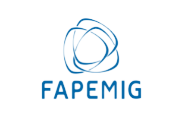Rethinking teacher education through the exchange of knowledge among teachers in the quest for Sensitive Geography
DOI:
https://doi.org/10.22238/rc2448269220191702193211Keywords:
Sensitive Geography. Teacher formation. Visual Education.Abstract
In this study related with Geography teaching in basic school the main objective is to explore experiences in the classroom whose meanings are defined as relevant for learning within the life experience context of educators and students. We propose a reflection on the teaching of Geography, highlighting central aspects to make learning more effective throughout the dimensions of everyday life. Inspired by the Kaecher’s ideas towards space education and in Oliveira Jr. studies related to images and Geography, we name this way to learn the space which values the sharing of our perceptions, Sensitive Geography. We develop two editions of a formation course to teachers in which the main goal was to promote Sensitive Geography through the exchange of teaching knowledge among the educators that work in Geography classes of public schools of São Leopoldo City, south Brazil. As conclusions it is possible to draw three main lines: first, Sensitive Geography seems to be effective considering it is more dynamic and interesting the classes in which is considered the spatial understandings and references of the students and teachers as the main contents; second, teachers’ performance is very exposed to social problems, in spite of it, they are very capable to exchange geography learning experiences to improve their classes; finally technological tools are very considered as expectancy to better reflect in teachings the aspects of our living spaces.
Downloads
References
BARTHES, Roland. Elementos de semiologia. São Paulo: Cultrix / USP, 1971.
CRAIA, Eladio. O virtual: destino da ontologia de Gilles Deleuze. Rev. Filos, Aurora: Curitiba. Vol. 21 n. 18. p 107-123, jan/jun, 2009. Disponível em <https://periodicos.pucpr.br/index.php/aurora/article/viewFile/1150/1075> Acessado em maio de 2019.
GOMES, Paulo Cesar da Costa. O lugar do olhar: elementos para uma geografia da visibilidade. Rio de Janeiro: Bertrand Brasil, 2013.
FREIRE, Paulo. Extensão ou comunicação? tradução de Rosisca Darcy de Oliveira. Prefácio de Jacques Chonchol 7ª ed. Rio de Janeiro, Paz e Terra, 1983.
________. Pedagogia da autonomia: saberes necessários à prática educativa. São Paulo: 26° ed. Paz e Terra, 1996.
KAERCHER, Nestor André. Práticas geográficas paralerpensaromundo, converentendersarcom o outroeentenderscobrira si mesmo. IN:REGO, Nelson, CASTROGIOVANNI, Antonio Carlos e KAERCHER, Nestor André. (orgs.) Geografia: Práticas pedagógicas para o ensino médio. Porto Alegre: Artmed, 2007. p.15-33
KAERCHER, Nestor André. TONINI, Ivaine Maria. ARTESANIA, FELICIDADE, EMPATIA: ASSUNTOS NÃO GEOGRÁFICOSPARA O ESTAGIÁRIO DE GEOGRAFIA CONSTRUIR SUA IDENTIDADEDOCENTE. Em: Geographia Meridionalis - Revista Eletrônica do Programa dePós-Graduação em Geografia da Universidade Federal dePelotas. V. 3 n. 2, 2017. p. 251-273. Disponível em <http://periodicos.ufpel.edu.br/ojs2/index.php/Geographis/index> Acessado em julho de 2018.
LIPOVETSKY, G.; SERROY, J. A tela mundo. In: ___. A tela global: mídias culturais e cinema na era hipermoderna. Porto Alegre: Sulina, 2009. p.255-298.
LUKÁCS, G. Prolegômenos: para a ontologia do ser social. Obras de Georg Lukás, Volume 13. Maceió: Coletivo Veredas, 2018.
MASSEY, Doreen. For space. London: Sage publications, 2008.
MORIN, Edgar. Os sete saberes necessários a educação do futuro. 2 ed. São Paulo: Cortez, 2000.
OLIVEIRA JR. Wenceslao Machado de. Entrevista com o professor Wenceslao M. de Oliveira Junior [entrevista concedida em 2013] Entre-lugar, Dourados, MS, p. 113-122. Ano 4, n.7, 1 semestre 2013. Entrevistador: Claudio Benito O. Ferraz.
________. Grafar o espaço, educar os olhos. Rumo a geografias menores.Pro-Posições, Campinas, v. 20, n. 3 (60), p. 17-28, set./dez. 2009. Disponível em <http://www.scielo.br/pdf/pp/v20n3/v20n3a02.pdf> Acessado em maio de 2018.
REGO, Nelson. Geografia, educação, linguagem: elementos de uma reconstrução ontológica? Revista da Anpege, v. 5, 2009.
SANTOS, Milton. A natureza do espaço: técnica e tempo, razão e emoção. 4 ed. São Paulo: Editora da USP, 2012.
________. Por uma outra Globalização: do pensamento único à consciência universal. 26°ed. Rio de Janeiro: Record, 2017.
SARTRE, J. P. L’existentialisme est un humanisme. Paris: Nagel 1952. Texto base disponível em: Antologia de texto filosóficos. Curitiba: Secretaria Estadual de Educação do Paraná, 2009. p. 616-639.
SOUZA, Jessé. A construção social da subcidadania: para uma sociologia política da modernidade periférica. Belo Horizonte: Ed. UFMG, 1° reimpressão 2006.
Published
How to Cite
Issue
Section
License
Copyright (c) 2019 Revista Cerrados

This work is licensed under a Creative Commons Attribution-NonCommercial-ShareAlike 4.0 International License.
In this journal, the copyrights for published articles belong to the author (s), with the rights of the first publication belonging to Revista Cerrados. The articles are publicly accessible, free to use, their own assignments, educational assignments and non-commercial applications.


















